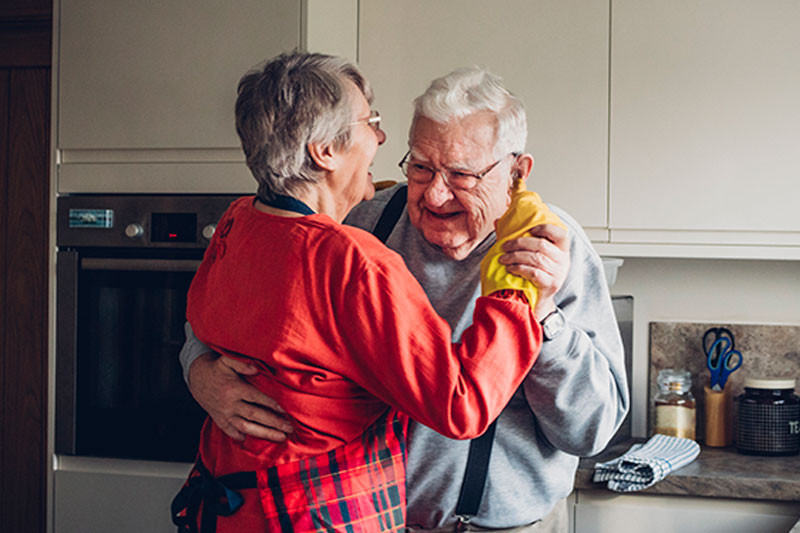
These dementia exercises can help loved ones stay fit through all stages of the disease.
When an older adult has dementia and all of the challenges that it entails, family care providers need a toolbox filled with helpful strategies. Of all the unique techniques care providers can use to aid in making life as safe, comfortable, and meaningful as possible, there’s one exceptionally effective strategy that may be neglected: exercise.
We know that exercising is essential for all of us, both physically and mentally, and that doesn’t change with a dementia diagnosis. Working out can help:
- Improve sleep
- Improve flexibility, balance, circulation and muscle strength
- Decrease pain
- Reduce the possibility of falling
- Boost mood and outlook
- And more
Even better, it is drug-free, so there are no negative side effects to worry about!
To motivate and encourage a loved one to participate in specialized dementia exercises, plan to work out together. This way you are able to demonstrate the movements and assist the senior when necessary – keeping in mind that performing the exercises as independently as possible is a wonderful way to increase self-esteem and confidence.
Unclear where to begin? Try these exercises, in accordance with the senior’s ability level, from our experts in Highland Alzheimer’s care.
Exercises for Early and Mid-Stage Dementia
These more advanced exercises work very well for a person with lesser cognitive impairment:
- Register (together!) for an exercise class at a local YMCA, gym, or senior center. If the individual enjoys being in the pool or may benefit from a lower impact activity, try water aerobics.
- Dance! You can dance together in the privacy of home, sign up for a dance class, or bring the older adult to social events at your local senior center that include dancing. Bonus: music is amazingly helpful in rousing memories for seniors with dementia.
- Work together in the garden – pulling weeds, raking, digging, planting, picking vegetables and flowers. Being out in the fresh air is a good mood booster as well, and the work provides a rewarding sense of purpose.
- Get cleaning! Chores around the house like sweeping, dusting, vacuuming, and even folding laundry are good ways to work in exercise, and completing these tasks together allows for conversations, reminiscing, and a sense of accomplishment when the work is done.
- Take a walk together – around the block, at the local park, in a shopping mall. Stick to the same route if the senior prefers, or change it up from day to day if more variety is appreciated.
Exercises for Later Stage Dementia
Modifications will have to be made as the disease progresses, but there are still opportunities to incorporate physical activity into the senior’s day, including:
- Sit to stand: From a seated position, with as much help as needed, the person will rise up to a standing position, pause for a few seconds, and come back to a seated position. Repeat several times.
- Chair stretches: This video offers several different stretches that will help strengthen and build muscles throughout the body.
- Bed stretches: For a senior who is bed-bound, moving and bending the arms and legs, either independently or with support, can help relieve stiff muscles.
Reach out to Morning Glory Home Care, Highland Alzheimer’s care provider for the surrounding areas, for help with implementing a good (physician-approved) fitness regimen for a loved one with dementia, along with the friendly companionship that makes exercise more pleasurable! Reach us any time at 618-667-8400. Visit our Service Area page for a full list of the communities in which we provide care.
